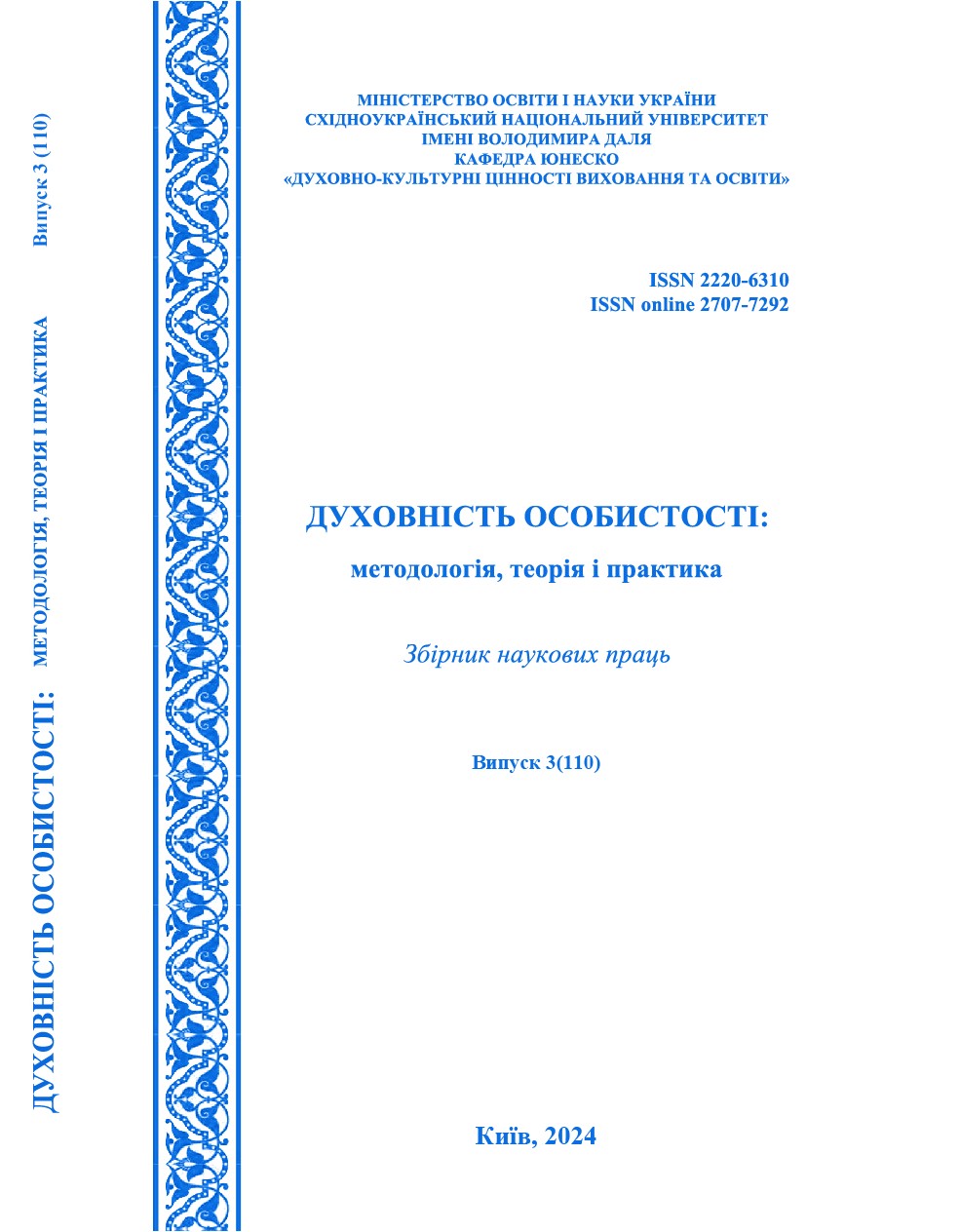Formation of gender competence of future social workers
DOI:
https://doi.org/10.33216/2220-6310/2024-110-3-54-62Keywords:
gender, gender approach, gender competence, monitoring of gender competence, gender-comfortable environmentAbstract
The article deals with the problem of forming a new generation of highly qualified social workers capable of solving complex situational tasks at a high professional level. The importance of rethinking the purpose and content of professional training of social workers through the prism of introducing a gender approach to education is highlighted. It has been found that a key component of gender training of social workers is the formation of gender competence, which can occur both through the introduction of cross-cutting gender-sensitive approaches and through the teaching of thematic courses. The author defines the conceptual apparatus, including gender, gender approach, and gender competence. The important components of gender competence (motivational and value, cognitive, behavioral) are highlighted and the levels of their formation in future social workers are studied.
The authors outline the tasks of forming the gender competence of future social workers and characterize the model of forming the gender competence of future social workers in the process of professional training in a higher education institution, which contains target, content, technological and effective components. The principles that determine the effectiveness of gender competence formation are specified. The important pedagogical conditions necessary to achieve a high level of professional competence in social workers are detailed.
The basic forms of activity are highlighted: strengthening the gender aspect in the teaching of compulsory and elective disciplines, introducing elements of gender research into the content of practical training tasks, gender issues in students' research work.
The main directions and stages of monitoring the gender competence of students of a higher education institution in the process of their professional training are determined: initial diagnostics, express diagnostics, control diagnostics.

